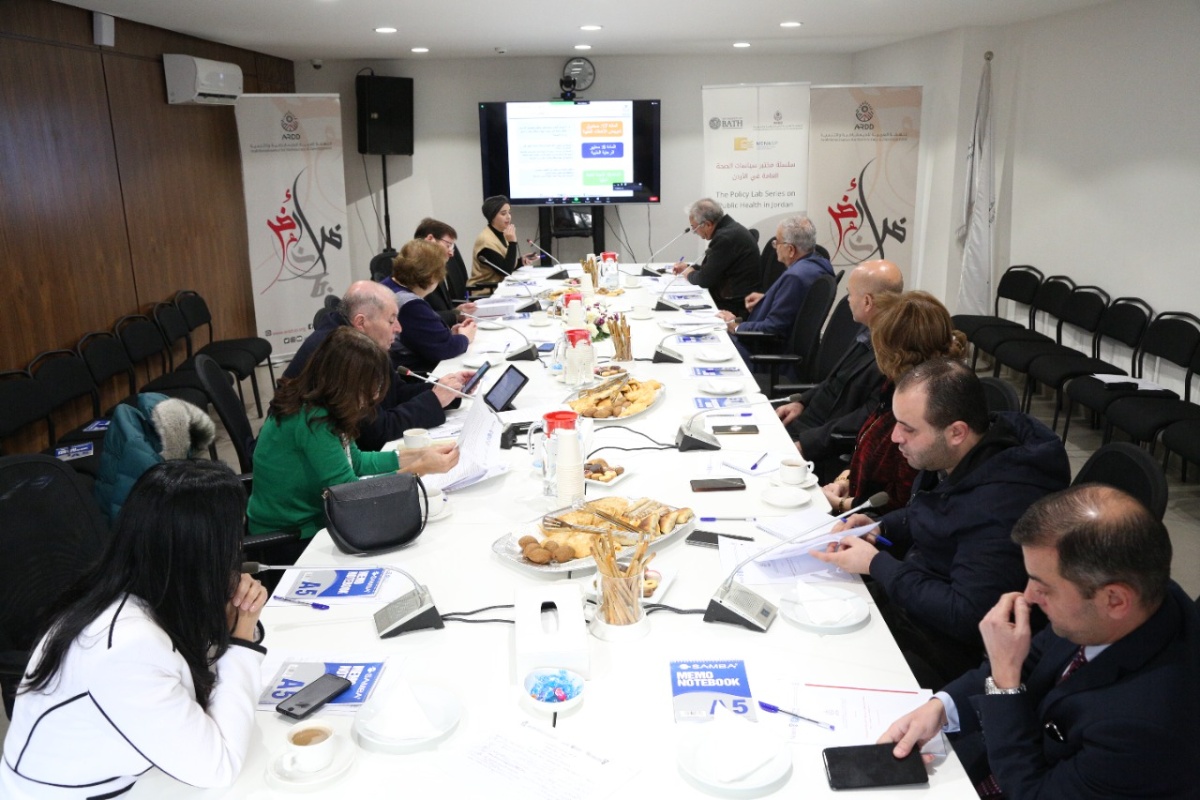The Medical Liability Law for 2018 is under scrutiny amidst discussions about its role in meeting the needs of patients and medical staff by protecting patients’ rights and ensuring practitioners are treated fairly. Such balance is hard to achieve but highly required.
The health sector is Jordan’s fastest growing. However, the gaps in health coverage and accountability are some of the most urgent to address. Therefore, the Arab Renaissance for Democracy and Development (ARDD) in partnership with the U.K.’s University of Bath, Canada’s Western University, Friedrich-Ebert-Stiftung – MENA, and the Center for Social Studies in Lebanon, held the first policies lab titled “Activating the Recommendations for the Implementation of the Medical and Health Liability Law No. 25 of 2018” on Saturday 17th December 2022.
Dr Sawsan Al Majali, senior consultant at Durrat Al Manal for Development and Training, moderated the lab. Experts from the health and justice sectors, activists, and civil society representatives participated in the lab. The session included the presentation of an analytical study about the law carried out by the AlNahda Center as well as discussions aiming at achieving a mutual understanding of the gaps and weaknesses of the current law.
Al Majali said that medical errors occur everywhere and that their rates in Jordan are normal and could even fall below global rates. However, it is essential to follow the required procedures to prevent errors, ensure the readiness of staff, and implement the medical liability law. The law’s role is to regulate and monitor the sector rather than punish practitioners.
Dr Mahmoud Shaiab, former Minister of Health, said the current form of the law is not helpful for patients nor practitioners due to the extended periods for complaint procedures for both Jordanians and foreigners and the lack of specific criteria. He stressed the importance of activating the law and introducing professional regulations for health services.
Dr Moumen Al-Hadidi, a former member of the High Technical Council for Medical Errors spoke about the importance of assigning a Secretary General for Medical Liability to help improve the sector. He stressed the need for experts and specialized practitioners in both health and legal sectors to examine the possibility of medical errors and ways to address them.
Dr Abdulhadi Breizat, President of the High Technical Council for Medical Errors explained the increase in cases dealt with by the Ministry of Health, Judiciary, and the Jordan Medical Association. He said that a lot of cases have not been addressed due to the committees’ members not being paid their wages. He stressed the importance of regulating the committee and committing to clear medical and health criteria for practitioners.
Dr Ziad Al Zoubi, Jordan Medical Association’s president stressed the importance of unified references to ensure accountability in light of a lack of clear procedures and processes for patients to complain. Additionally, a lot of people are unaware of complaint mechanisms. He added that it is essential to include the private sector and civil society in policymaking.
Samar Muhareb, ARDD’s CEO said the organization is receiving increased medical error cases. The majority of the cases are by those less able to access the Ministry of Health or the Medical Association. She highlighted the importance of introducing specific and standardized medical procedure guidelines along with a clear action plan to raise the awareness of practitioners of the guidelines.
Dr Fadia Samara, a member of the Patient Protection Coalition shared her view on the importance of revisiting the decision to establish a higher council for the Medical Liability Law and the participation of relevant actors to protect the rights of patients as the priority group within the law.
Dr Ishaq Khairi, President of the Jordanian Association for Protection Against Medical Errors said that according to investigative committees and the judiciary, the reasons behind medical errors are generally due to a doctor’s or assistant’s lack of commitment to the profession’s rules, the inaccurate execution of their roles, negligence, or inaccurate diagnoses. He stressed that inaccurate diagnosing is the main reason behind errors.
In addition to the points above, participants recommended the creation of a database to document medical error cases, the accurate implementation of the law on all of its levels, the activation of the role of service receivers and civil society, the enhancement of the systems of the High Technical Council for Medical Errors and its subcommittees, the activation of the insurance fund for medical errors, and raising awareness about the law.
They also recommended increasing incentives for specialists and experts of committees responsible for reviewing medical error cases, disseminating information with transparency to increase the sector’s credibility, activating the national record, regularly reviewing laws, and introducing the medical liability law to medical students through universities.


